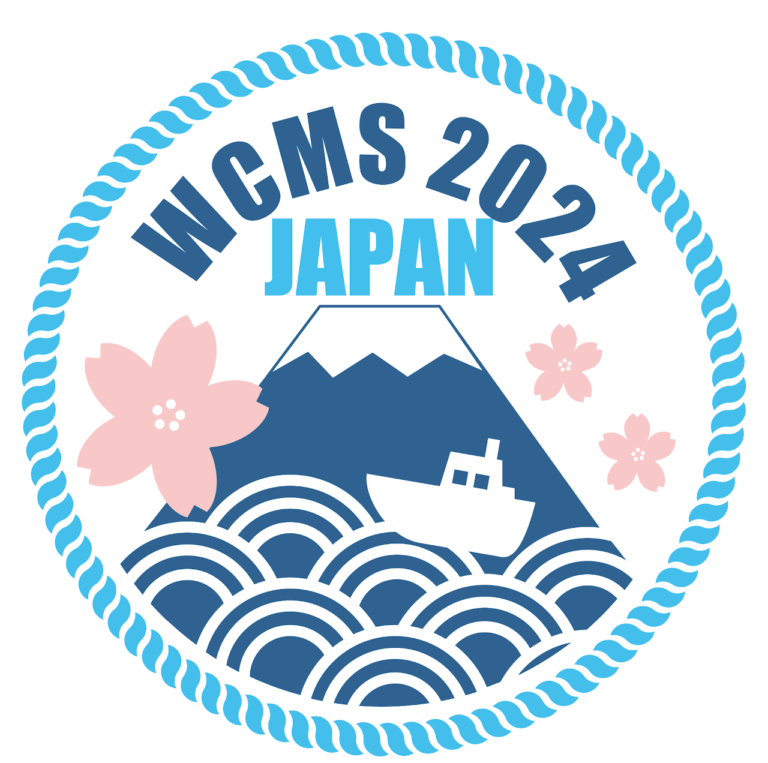Commitment to Global Collaboration and Support
The 2nd World Congress of Marine Stations 2024
27-29 November 2024 in Shizuoka, Japan

Congress Statement
The World Association of Marine Stations (WAMS) is a major effort to mobilise the capacity for marine stations globally, providing a forum for marine stations from all regions of the world to strengthen collaboration and establish inclusive partnerships for the fostering of marine research and education.
WAMS was formally established at the 1st World Congress of Marine Stations held online in November 2021 aligning with the launch of the United Nations Decade of Ocean Science for Sustainable Development (2021-2030). The association was established to address the escalating environmental challenges by leveraging marine sciences, thereby supporting global sustainability efforts.
The 2nd World Congress of Marine Stations, held from 27-29 November 2024 in Shizuoka, Japan (https://sites.google.com/view/wcms2024japan), recognises that the pressures on the ocean due to climate change, pollution, and other anthropogenic factors continue to pose a severe challenge. The need to mobilise resources and capacity on a global scale is therefore more urgent than ever. This resource mobilisation must be inclusive, incorporating all marine stations, including those in least developed countries, as global-scale challenges demand a global-scale response. Marine stations are often at risk due to reductions in funding and/or a failure to recognise their unique role in providing access to the marine environment, supporting critical scientific research, capacity building, and ecological stewardship.
The following key insights emerged from the round-table discussions and plenary sessions during the 2nd Congress:
- Marine Stations as Critical Infrastructure: They offer unique insights due to their long-term presence and integration of new scientific methodologies with traditional knowledge, amplifying their pivotal role in elucidating our understanding of the marine environment. The broad distribution of stations across the globe and breadth of expertise means they are ideally suited to address the 10 challenges for the UN Ocean Decade.
- Networking Strengthens Capacity: A network of marine stations enhances the capabilities of individual stations by creating opportunities for sharing knowledge and resources, which is vital for the development of innovative research methods and for addressing impacts that operate at a global scale including climate change and biodiversity loss.
- The Evolving Role of Marine Stations: New marine stations are increasingly focusing on applied science and in addition to fundamental research and education, offer vital services like data management and technological support for industries, and contribute towards a sustainable blue economy by providing expertise to the local and global communities through consultation and outreach activities.
Commitment to Global Collaboration and Support: WAMS aims to facilitate collaboration, capacity sharing and mobility between stations through its network, online Atlas and developing centralised information platform, which details infrastructure and resources available at various marine stations globally.
Call to Action: We urge international stakeholders to invest in the stability and expansion of the network of marine stations, supporting their foundational role in marine research, education and societal engagement, and enabling them to address pressing marine and environmental challenges effectively.
Conclusion: WAMS is committed to championing the importance of marine stations and advocating for sustained financial and political support to ensure these vital institutions continue their mission. This support is crucial not only for advancing scientific understanding and conservational efforts but also for aiding global efforts to meet the ambitious targets set for this crucial UN Decade of Ocean Science for Sustainable Development.
Signed,
- Prof Matt Frost, Chair of WAMS, Plymouth Marine Laboratory, UK
- Dr Anna Gebruk, Secretary of WAMS, The University of Edinburgh, UK
- Dr Neil Davies, Director, Gump South Pacific Research Station, University of California Berkeley, French Polynesia
- Prof José A Juanes, Director of Education & Capacity Building, Environmental Hydraulics Institute (IHCantabria), Universidad de Cantabria, Spain
- Prof Axel EJ Miller, WAMS Management Group Representative, The Scottish Association for Marine Science, UK
- Prof Augusto A V Flores, WAMS Steering Committee Member, Centre for Marine Biology, University of São Paulo, Brazil
- Prof Kazuo Inaba, President of Japanese Association for Marine Biology, Shimoda Marine Research Center, University of Tsukuba, Japan
- Dr Jani Tanzil, Facility Director, St. John’s Island National Marine Laboratory, National University of Singapore, Singapore
- Dr Bangqin Huang, Distinguished Professor, Director, National Observation and Research Station for the Taiwan Strait Marine Ecosystem (T-SMART), Xiamen University, China
- Prof Bayram Öztürk, Head of Turkish Marine Research Foundation, Türkiye
- Dr Sophie Seeyave, CEO, Partnership for Observation of the Global Ocean (POGO), UK
Add your signature to this declaration
Fill out the form below to be added. Thank you for your support.